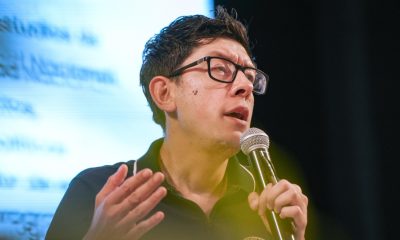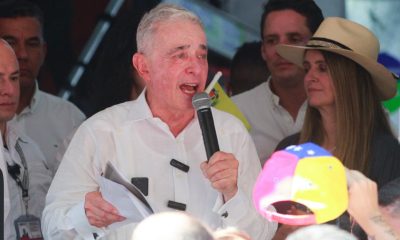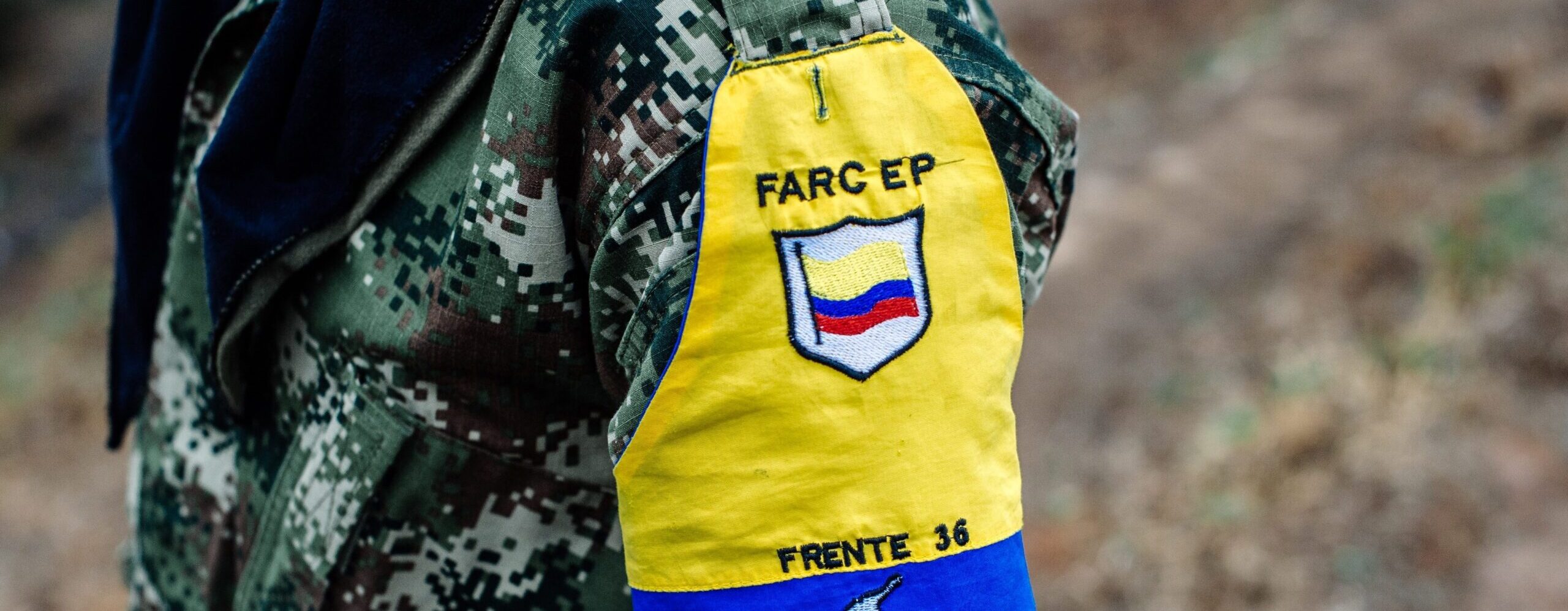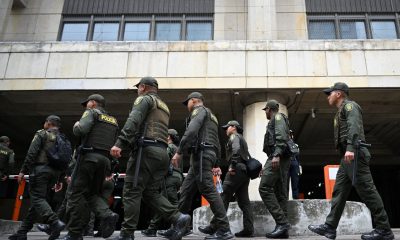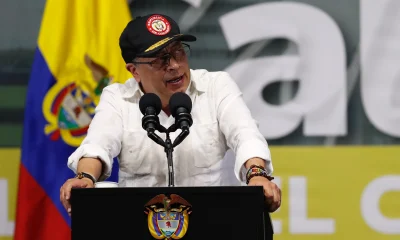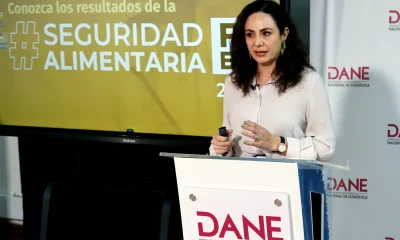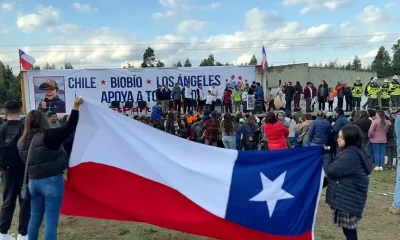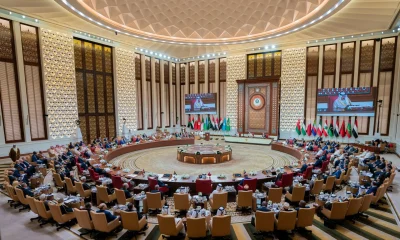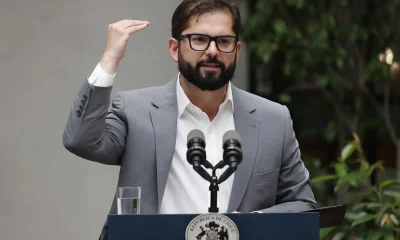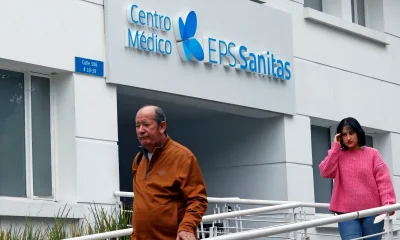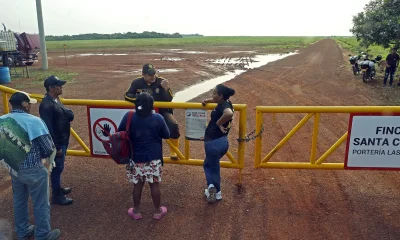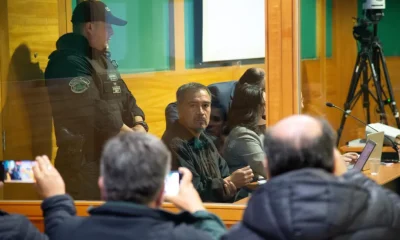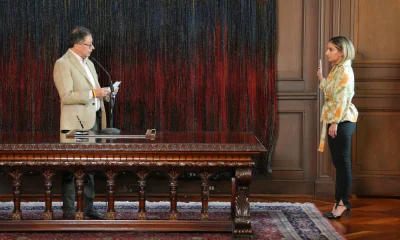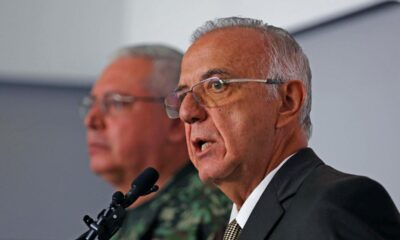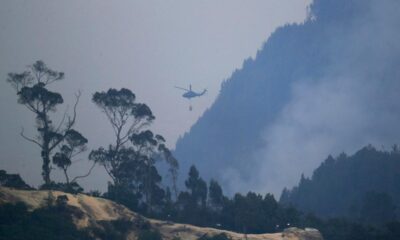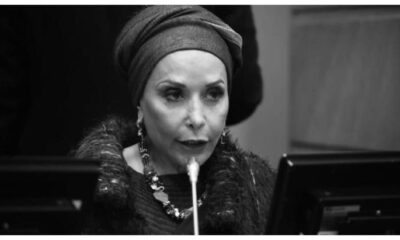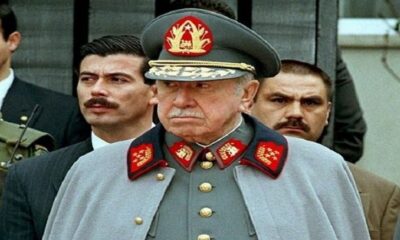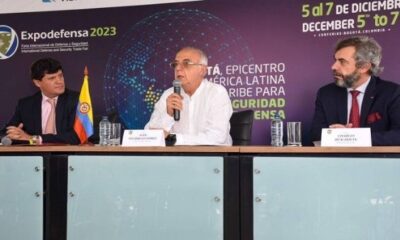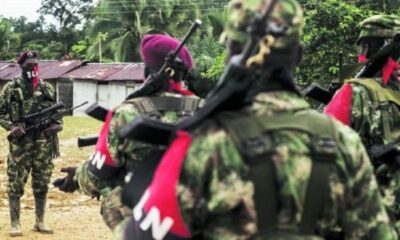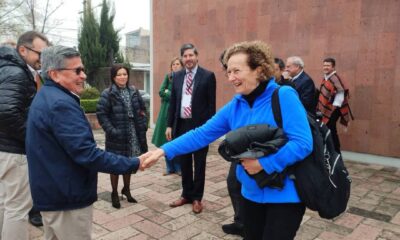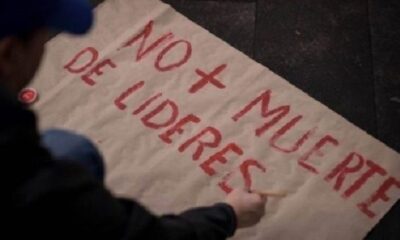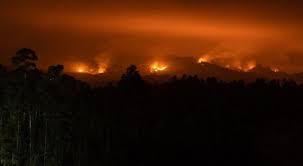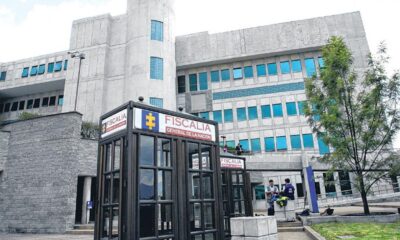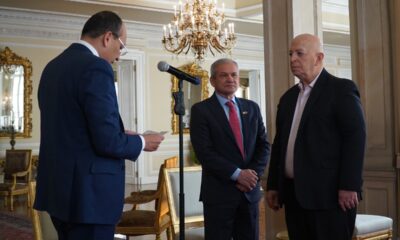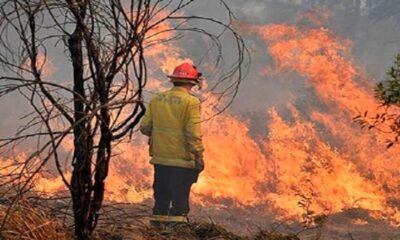International
The Foreign Ministry of Chile protests against Colombia for Petro’s controversial statements about Jadue
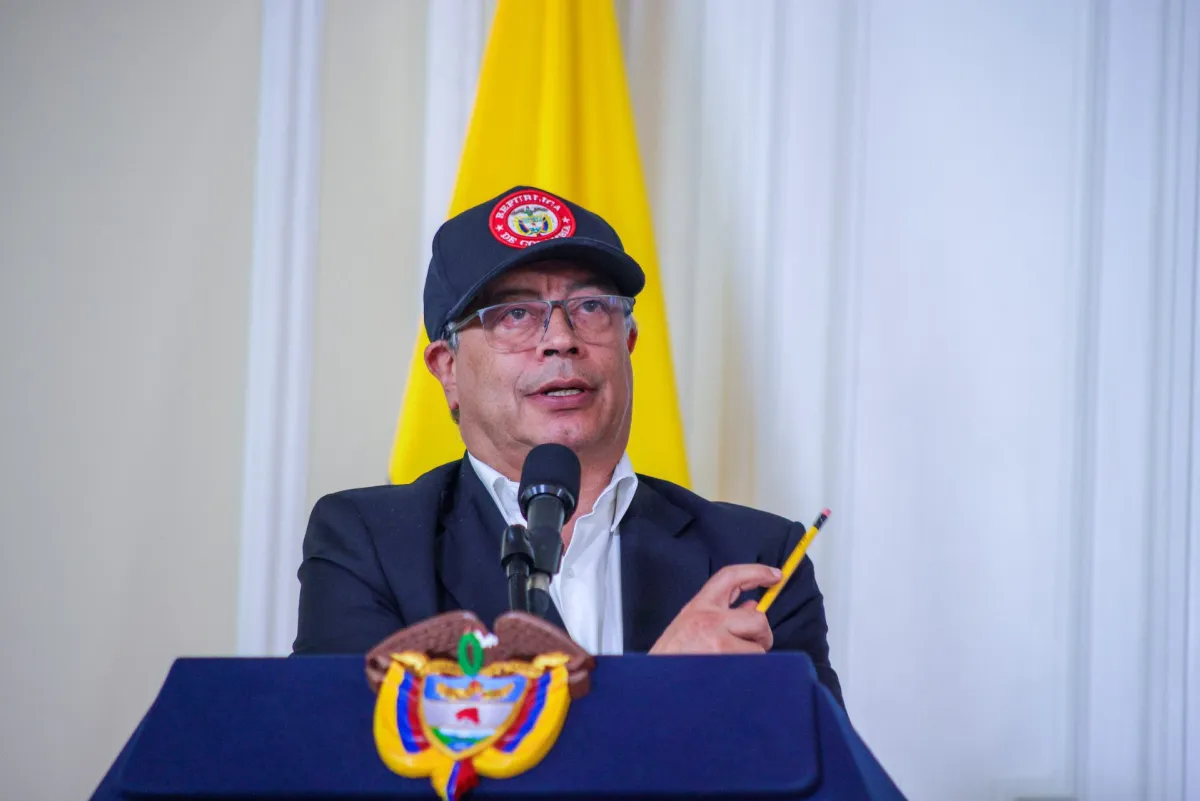
The Foreign Minister of Chile, Alberto van Klaveren, delivered on Monday a harsh note of protest to Colombia in which he described as “unacceptable” and “imprudent” the statements of the president of this country, Gustavo Petro, who asked for the release of the mayor of the municipality of Recoleta in Santiago de Chile, the communist Daniel Jadue.
“They do not know the democratic trajectory of our country, as well as the existence of a rule of law,” the Chilean Minister of Foreign Affairs added in his account of X.
Petro said on his social networks that Jadue, in pretrial detention for more than a month accused of several crimes of corruption, is “prisoned by Pinochet’s jurisprudence imposed on free beings.”
In addition, he published a video of Gabriela Rivadeneira, one of the members of the International Justice Committee for Daniel Jadue, who demands his release and assures that imprisonment is because it can “end the great business of pharmaceutical companies.”
The president of Colombia released his statements on the same day that the hearing of review of the mayor’s precautionary measures was held at the request of the defense, but the court decided to keep the maximum and leave him in prison because he considers it “a danger to the security of society.”
In the morning, the spokeswoman for the Government of Chile, Camila Vallejo, said that Chile “has a rule of law” and “separation of powers,” and stressed that the changes in the Chilean political system “determine” by Chile, “not authorities from other countries.”
“The Executive cannot be giving its opinion, or less intervening on judicial proceedings that are underway, either for the commune of Recoleta or for another case,” he added.
Petro’s words put at risk the good relations between the governments of both countries and the mutual admiration that both presidents – Petro and that of Chile Gabriel Boric – have expressed several times.
Petro’s second and most recent visit to La Moneda in Chile took place in September last year, in the context of the commemoration of the 50th anniversary of Augusto Pinochet’s coup d’état.
Jadue, a 56-year-old graduate in architecture and sociology of Arab origin, is one of the main leaders of Chilean communism. He played the presidential primaries of the left against Boric and, from his hand, the Communist Party settled on the front line of Chilean politics.
The politician of Chile is prosecuted for unfair administration, fraud, bribery, bankruptcy crime and tax fraud. All this within the framework of the management of the Chilean Association of Municipalities with Popular Pharmacies (Achifarp), of which he was president.
International
Claudia Sheinbaum: Operation Against ‘El Mencho’ Was Based on Pending Arrest Warrants

Mexico’s President Claudia Sheinbaum on Wednesday rejected claims that the military operation that resulted in the death of Nemesio Oseguera Cervantes, known as “El Mencho,” leader of the Jalisco New Generation Cartel (CJNG), was carried out under pressure from the United States government.
Sheinbaum explained that the deployment of federal forces was aimed at executing outstanding arrest warrants against Oseguera Cervantes, who was considered one of the most wanted criminals in both Mexico and the United States.
“That was not the objective (to ease pressure from the United States). It is very important, and I want to repeat it. This individual had an arrest warrant, or several,” Sheinbaum said, referring to the operation conducted on February 22.
According to the president, the initial goal was to capture Oseguera Cervantes, but military forces responded after coming under attack during the intervention.
“The operation was to detain him. The problem is that they were attacked — the Secretariat of National Defense — and they responded at that moment,” she said.
The president insisted that the action was not carried out in response to external demands, although she acknowledged intelligence cooperation with the United States.
“It was not done in any way because of pressure from the United States, not at all. Of course, there was intelligence information from the United States that was used specifically,” she concluded.
International
Spain Denies Any Agreement to Cooperate with U.S. Military in Iran Operations
International
White House Says Spain Agrees to Cooperate with U.S. Military After Trump Threatens Trade Embargo

White House Press Secretary Karoline Leavitt said Wednesday that Spain has agreed “in recent hours” to cooperate with the U.S. military, following President Donald Trump’s threat to impose a trade embargo on Madrid.
Trump had warned of potential commercial measures after Spain reportedly refused to allow the Pentagon to use facilities at Spanish military bases for operations related to Iran.
“With respect to Spain, I think you heard the president’s message yesterday loud and clear, and I understand that in recent hours they have agreed to cooperate with the United States military,” Leavitt said during a press briefing.
She added that the U.S. military is currently coordinating with its counterparts in Spain. However, the president expects broader support.
“The president expects that all of Europe, all of our European allies, of course, will cooperate in this important mission — not only for the United States, but also for Europe,” Leavitt said.
Her remarks came in response to questions about Spain’s position and its role as a U.S. ally amid rising tensions surrounding operations involving Iran.
-

 International3 days ago
International3 days agoIran Reports 201 Dead, 747 Injured After U.S. and Israeli Strikes
-

 International3 days ago
International3 days agoPope Leo XIV Urges End to ‘Spiral of Violence’ in Middle East
-

 International2 days ago
International2 days agoBrazil’s Supreme Court Rejects Bolsonaro’s Bid for House Arrest
-

 Sin categoría4 days ago
Sin categoría4 days agoTrump: ‘We Think It’s True’ Amid Claims Iran’s Supreme Leader Was Killed
-

 International4 days ago
International4 days agoSecurity Council to Hold Emergency Meeting on Middle East Crisis
-

 International5 days ago
International5 days agoTrump Floats “Friendly Takeover” of Cuba Amid Rising Tensions
-

 International2 days ago
International2 days agoAnti-ICE Billboard Campaign Targets Immigration Spending in 31 U.S. Cities
-

 International5 days ago
International5 days agoArgentina’s Senate Reviews Milei-Backed Labor Overhaul
-

 International2 days ago
International2 days agoTrump Warns of ‘Major Wave’ of Attacks as Iran Conflict Escalates
-

 International1 day ago
International1 day agoSpain’s Prime Minister to Address Nation Amid Trump’s Trade Threats
-

 International2 days ago
International2 days agoMexico Calls for Immediate Probe After National Dies in ICE Custody
-

 Central America2 days ago
Central America2 days agoPanama Canal Monitoring Trade as Middle East Conflict Disrupts Shipping
-

 International1 day ago
International1 day agoNew York Announces First 2,000 Seats in Universal 2-K Program
-

 International2 days ago
International2 days agoBolivia Orders Three Investigations Into Deadly Military Plane Crash
-

 Central America1 day ago
Central America1 day agoGuatemala’s Attorney General Fails in Bid for Top Court Seat Amid Corruption Allegations
-

 International1 day ago
International1 day agoWarner Bros. Developing First ‘Game of Thrones’ Movie With ‘Andor’ Writer
-

 International2 hours ago
International2 hours agoWhite House Says Spain Agrees to Cooperate with U.S. Military After Trump Threatens Trade Embargo
-

 International2 hours ago
International2 hours agoSpain Denies Any Agreement to Cooperate with U.S. Military in Iran Operations
-

 Central America1 hour ago
Central America1 hour agoNicaragua Held Responsible for Harassment of Opposition Prosecutor and His Family
-

 International1 hour ago
International1 hour agoClaudia Sheinbaum: Operation Against ‘El Mencho’ Was Based on Pending Arrest Warrants































